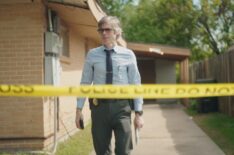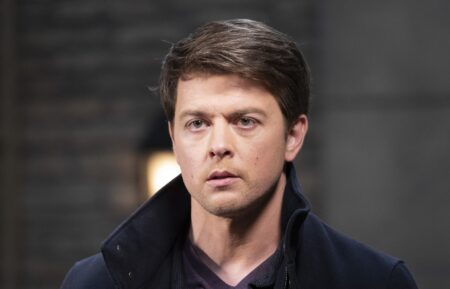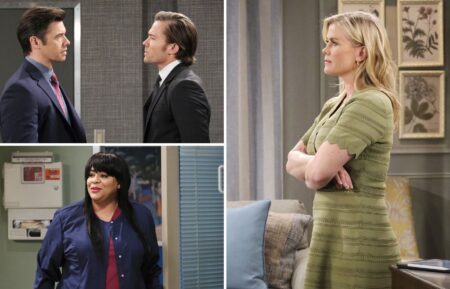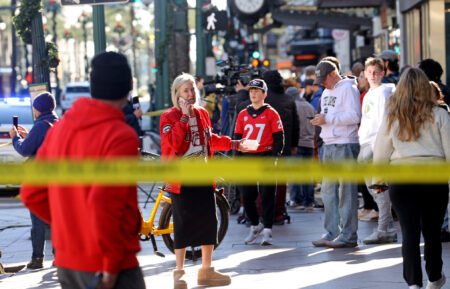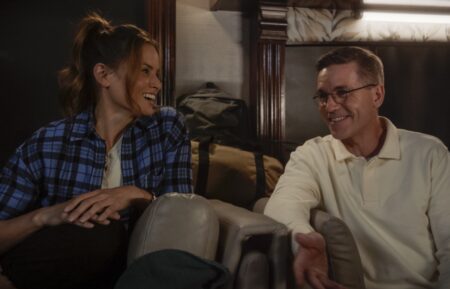Inside ‘Fugitive Hunters Mexico’ as Team Tracks Down Criminals on the Run
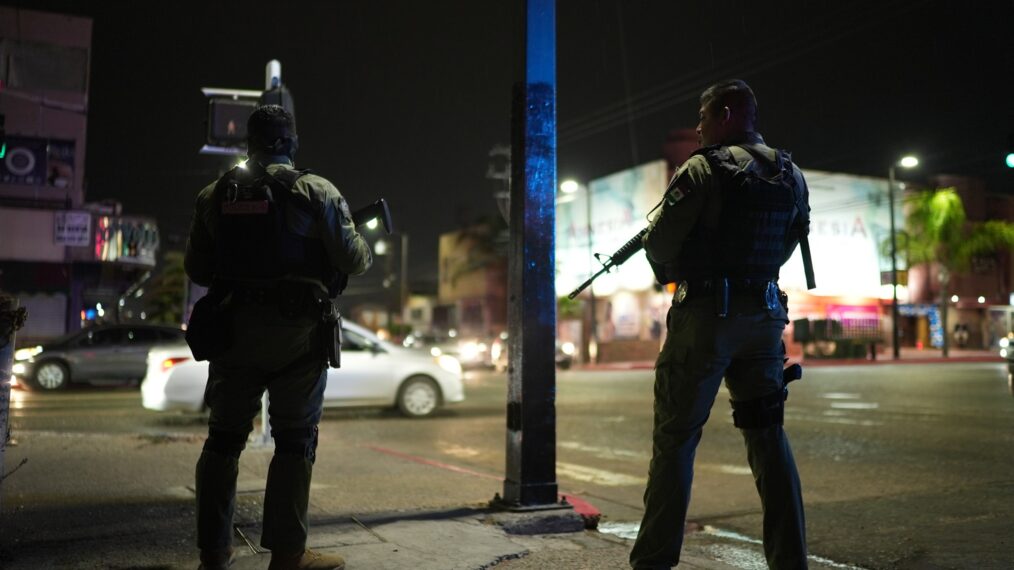
Q&A
There is no hiding across the border for American fugitives in Fugitive Hunters Mexico. The new A&E docuseries sees undercover units investigate, track, and capture these most wanted criminals to answer for their crimes. After their apprehension, they are handed over to United States law enforcement.
Translators including Victoria Castillo were embedded with these crews to not only help document the process but also get to speak with the fugitives. Here Castillo opens up about her time working with the elite Mexican task force on these cases and the potential danger involved.
How long have you been a translator?
Victoria Castillo: I’ve been a translator pretty much all my life for different projects. I’m a first-generation Mexican-American. Spanish was my first language. I think it’s something first-gen kids learn to do very early on. It has always been part of me and something I’ve always done. Having done some other on-camera projects in Spanish as well, it has kind of come naturally. As far as true crime and law enforcement go, it’s just a very deep interest in mine. It’s something I’m very passionate about. I always wanted to be a cop and am very interested in politics and history and the world and storytelling. I, as a photographer, capture that in my travels and projects. It kind of went hand-in-hand with this project. That’s how I ended up here.
How much experience do you have working with law enforcement? Have you been in these types of situations?
No, this is a new experience for me. I have never been in a situation like this. I grew up in a rough area. I grew up in the hood. It’s kind of something I’ve always been interested in. I don’t scare easily. I’ve learned a lot of things growing up. I saw a lot of things growing up. This has always been interesting to me. This was an opportunity where all my passions combined, and I jumped on it.
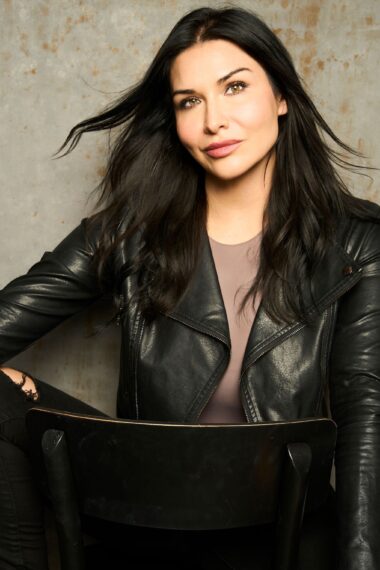
Victoria Castillo (A&E)
What kind of preparation did you do before filming began?
Before I even went to Mexico, I wanted to make sure I was prepared physically and mentally. As the job came closer and I was preparing to go to Mexico, I started going to the shooting range a lot more. Not just for target practice, but to be around a lot of loud noise. I would just stand there and talk to myself and narrate what was happening. This was so I could prepare to be around chaos and loud war zone-type situations. I did preparation on my own before Mexico. Once I went to Mexico, I went through training at the police academy with the Mexican police. We did hostile environment training and those things to be prepared to be with them and worse-case scenarios.
In the first episode, you work alongside the team as they go in to retrieve a drug trafficker named Adam Pittman. He has a history of violence. There is a point where you put on the bulletproof vest. What was going on in your mind at this moment?
I put on my bulletproof vest a lot during these operations with the Mexican police. I knew it was part of the job. I knew what the dangers were. I knew what I was signing up for. I knew I would be working closely with the police to do these big operations. I tried to see it as part of the job and process. I think that is what kept me calm and walking through the motions every day. You can’t be jumpy about every little thing. So putting on the vest for me became an everyday thing.
The team works under the guise that they are picking up a mattress for sale. You then see this takedown happen. How was it witnessing that firsthand?
It’s surreal. I’m with the police through the entire process from the investigation to piecing everything together to the actual surveillance to the actual arrest. This specific case was an undercover operation where the agents pretended to be interested in the mattress the fugitive was selling in order to be able to enter the home to see if he really was there. The whole point of a surveillance operation is that you want eyes on the subject. You want to verify they are in there. If they don’t come outside, you don’t get to go inside unless you have a warrant. If you wait for a warrant, you risk them fleeing. This was a creative way of seeing if he was in fact there.
Once they verified he was in there, they got him out by asking him to help carry the mattress out because of it was heavy. That’s how that unfolded. You think there is no way the fugitive is going to buy this, and he did. You watch it all unfold. It’s very serious work, and at the moment, I’m not in there as a true-crime fan. I’m acting as almost one of the agents or a journalist or narrator. It’s a very serious situation where anything could happen. Things could get dangerous and turn at any point. This was a big guy, so it was risky.
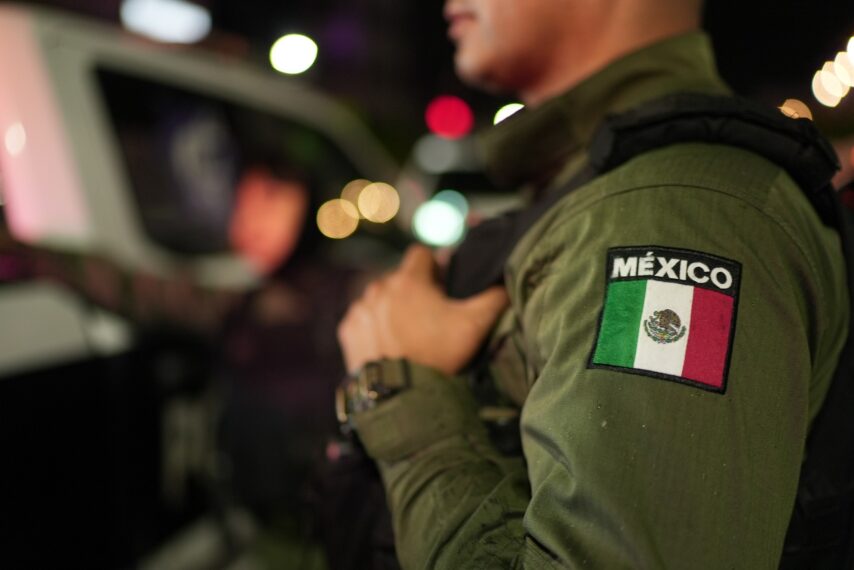
A&E
One of the fascinating parts of the show is after the capture when you get to know their story. What was it like for you to have these fugitives open up to you?
That’s the most fascinating aspect of the job I think, and what I looked forward to the most. Getting to speak to the fugitives after the arrest. Knowing it’s probably one of, if not the most, vulnerable moments of their lives. They’ve just been arrested in a foreign country in which they’ve been running from the law for a prolonged period of time. It’s a gamble whether they would talk to me or not. I have to go in there very disarming and honest and transparent and they have to see me as authentic. That I’m not there as a cop or there to interrogate or incriminate them. I just want to know their story. I was surprised that they agreed to talk to me. More than everything, I wanted to get to the bottom of what life was like on the run. What is it like being a fugitive? This man specifically. He was in the service here in the U.S. How do you go from being an American hero to being a fugitive in Mexico?
What happens to a person to goes through that process? How did you survive? Who helped you? Where did you live? How did you make money? I wanted to know all the things. I think it comes from an angle of being nonthreatening and being real. They can sense I’m not there to make them look bad or incriminate them. I just want to know their stories. At the end of the day, it’s them believing you. I was there for the arrest, so I can tell them, “I was there and heard the cops’ side of the story. Now tell me your side of the story. This may be the last time you can say your side and version of the events.” Share with me. Even with cameras there sometimes, you think they will say no. Sometimes they do and don’t want to talk. For the most part, they gave me consent and opened up. That was very eye-opening. It makes them human. You realize they are just people who have made mistakes. Some are greater than others. And these are the consequences.
What can you tease about the other takedowns you are a part of? Are there cases you’re genuinely worried for your safety?
It can all turn dangerous quickly. Some cases were easier than others. Some took more time. Some were very frustrating because there were long hours of surveillance where nothing would happen. I don’t want to give away too much, but there were cases I was passionate about. There was one where the fugitive scammed a lot of immigrants here in the U.S. and took their life savings and pretended to be an immigration officer that would give them legal status in the U.S.
He did this to so many people and made so much money. He pretended to be an ICE or FBI agent. You’l have to see how that unfolds, but that all hit home for me. I wanted them to get them so bad. I was very frustrated where it seemed impossible because he was smart and knew how to evade the law. That hit close to home. I’m the daughter of immigrants. That could have been my parents and family. That could have been their life savings. I really was rooting for the police to catch this guy. It was very interesting but the one I was most passionate about. There were so many cases, and every one was different.
Fugitive Hunters Mexico premiere, January 2, 10/9c, A&E

